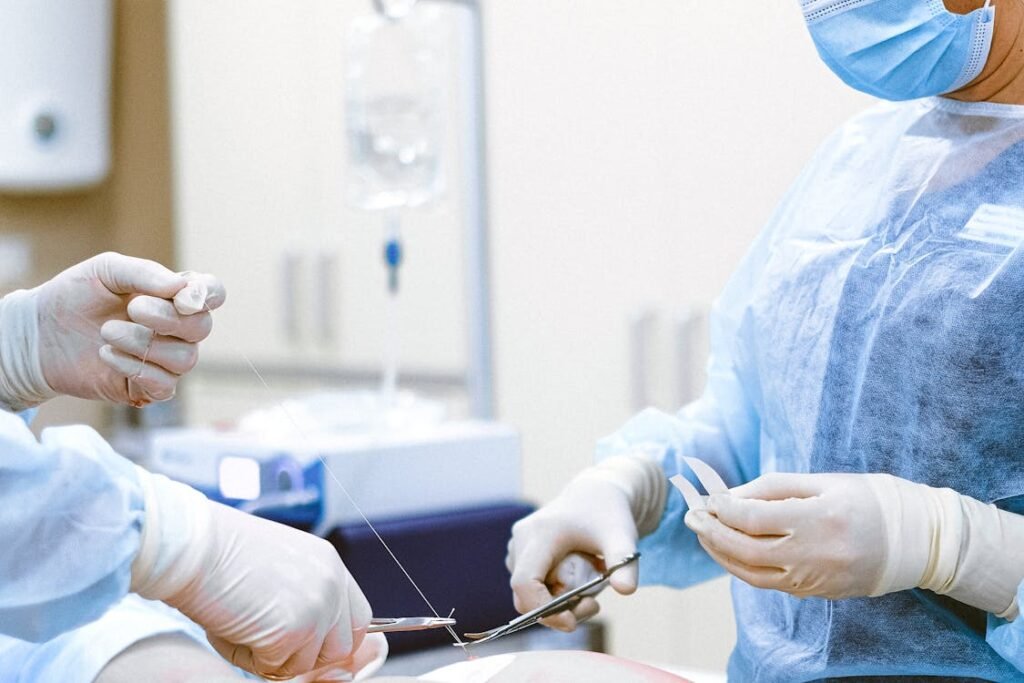Medical treatment is meant to heal, but when a mistake by a doctor or hospital causes harm instead, the consequences can be life-changing. Medical negligence can lead to serious injuries, long-term health complications, or even permanent disability. In such cases, seeking compensation is not just about financial relief—it is about justice, accountability, and ensuring that similar mistakes do not happen to others.
Many people in India do not know that they have the legal right to file a claim for medical negligence. Whether it is a surgical error, incorrect diagnosis, improper treatment, or negligence during childbirth, the law provides a way for victims to seek justice. However, the process can be complex, requiring strong evidence and a strategic legal approach.
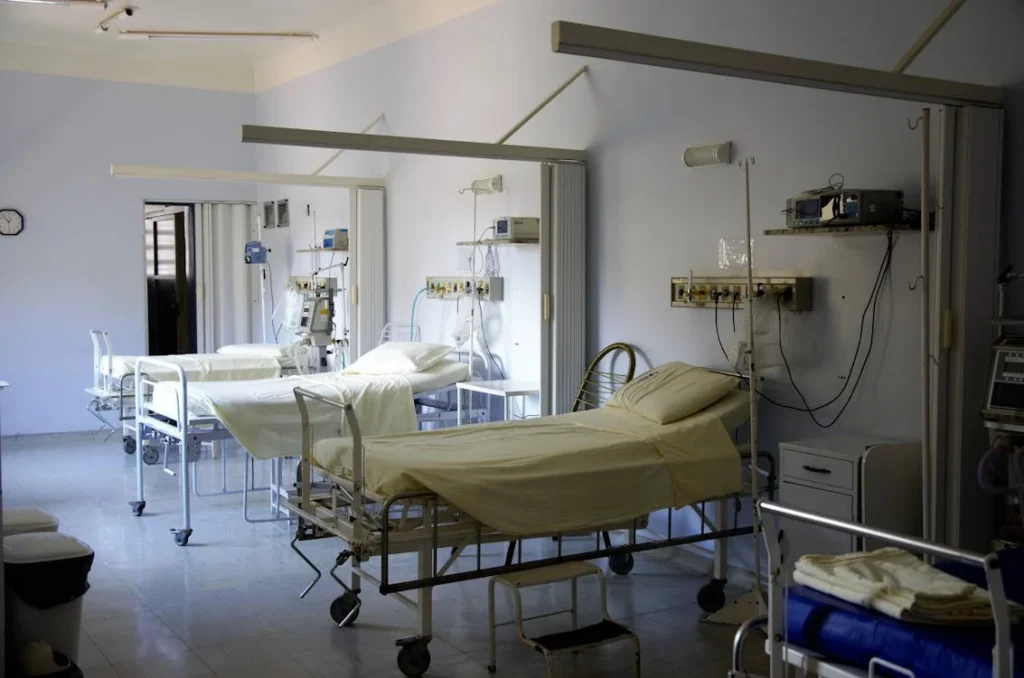
Understanding Medical Negligence and Your Rights
Medical negligence occurs when a doctor, hospital, or healthcare provider fails to meet the standard of care, resulting in harm to the patient. In legal terms, negligence is defined as a breach of duty of care that directly causes injury or disability.
Not every medical error qualifies as negligence—only those where the healthcare provider acted irresponsibly or failed to follow standard procedures.
What Constitutes Medical Negligence?
Medical negligence can take many forms, including misdiagnosis, delayed diagnosis, surgical errors, medication mistakes, improper anesthesia administration, birth injuries, and failure to provide proper post-operative care.
If a healthcare professional’s mistake has led to permanent disability or worsened an existing condition, you may have a valid case for compensation.
For example, if a surgeon operates on the wrong limb, leaves a surgical instrument inside the body, or performs an unnecessary procedure, it is considered gross negligence.
Similarly, if a doctor prescribes the wrong medication that causes severe complications, or if a hospital fails to provide timely treatment in an emergency, leading to disability, it can be challenged legally.
Legal Rights of Patients in India
In India, several laws protect patients from medical negligence. The Consumer Protection Act, 2019, allows patients to file complaints against doctors and hospitals under the category of deficiency in service.
Additionally, the Indian Penal Code (IPC) Sections 304A, 337, and 338 provide criminal liability for medical negligence if it results in serious harm or death.
The Medical Council of India (MCI) regulations also hold doctors accountable for professional misconduct. If a doctor is found guilty, they can face suspension or cancellation of their medical license.
In cases where medical negligence leads to a lifelong disability, the victim has the right to demand financial compensation for medical expenses, lost income, emotional suffering, and rehabilitation costs.
If you suspect that medical negligence has caused a disability, it is crucial to act quickly. Gathering evidence, consulting a legal expert, and understanding the process can significantly strengthen your case.
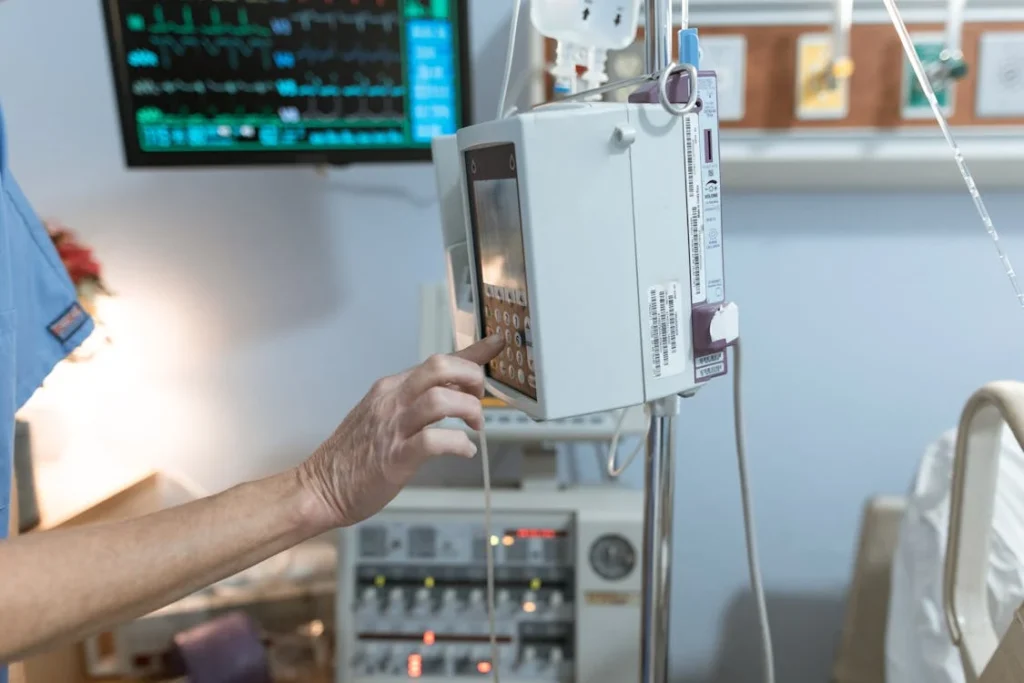
Steps to Prove Medical Negligence and Strengthen Your Case
Filing a medical negligence claim requires solid evidence to prove that a doctor, hospital, or healthcare provider’s mistake led to a disability. Courts do not automatically assume fault, so the burden of proof lies with the patient or their family.
To build a strong case, you need to follow a structured approach that includes gathering medical records, obtaining expert opinions, and filing the complaint with the right authority.
Collecting Medical Records and Evidence
The first step in proving medical negligence is to gather all medical records, prescriptions, test reports, hospital bills, and discharge summaries.
These documents serve as evidence to show what treatment was given, what went wrong, and how it led to disability. If possible, obtain written opinions from other doctors who can confirm that a medical mistake occurred.
If there were witnesses—such as family members present during treatment or hospital staff who observed negligence—their statements can be valuable.
In cases where surgery or treatment was recorded (such as CCTV footage in hospitals), requesting access to this evidence can further strengthen your claim.
Seeking an Independent Medical Opinion
Medical negligence cases often require an expert medical opinion to confirm that the healthcare provider failed to meet the standard of care. The court relies on testimony from qualified doctors to determine whether the actions of the accused medical professional were negligent.
A specialist in the same field as the accused doctor can review the case and provide a detailed report.
This report should explain how the negligence occurred, what should have been done differently, and how the mistake caused permanent harm. Having a credible medical expert supporting your claim can significantly increase the chances of success.
Filing a Legal Complaint
Once you have gathered sufficient evidence, you can file a complaint against the responsible doctor or hospital. Depending on the severity of the case, there are three main legal avenues available:
- Consumer Court (Consumer Protection Act, 2019) – If the negligence resulted in financial loss, disability, or prolonged suffering, you can file a case in the District, State, or National Consumer Disputes Redressal Commission. Consumer courts handle complaints about deficiency in service, and medical negligence falls under this category.
- Civil Court (For Compensation Claims) – If you are seeking monetary compensation for medical negligence leading to disability, you can file a civil lawsuit against the hospital or doctor. Civil cases can demand damages for medical expenses, lost income, emotional distress, and long-term rehabilitation costs.
- Criminal Court (If Negligence Led to Death or Severe Disability) – If the negligence was extreme, leading to death or permanent disability, you can file a complaint under Section 304A of the Indian Penal Code (IPC) for causing death by negligence. This can result in criminal prosecution against the responsible medical professional.
Approaching the Medical Council of India (MCI)
Apart from filing a legal complaint, you can also report the doctor to the Medical Council of India (MCI) or the respective State Medical Council.
If the doctor is found guilty of professional misconduct, their license can be suspended or permanently revoked. This step ensures that negligent doctors are held accountable and do not continue to harm other patients.
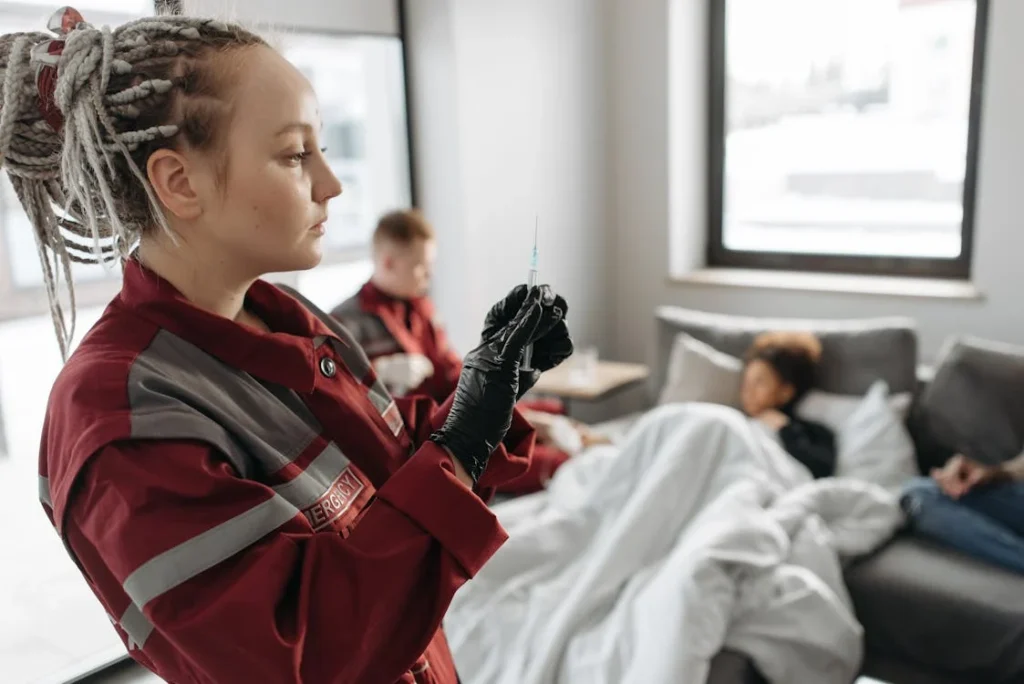
Seeking Compensation for Medical Negligence
Once you have filed a complaint, the next step is to demand compensation for the damages caused by medical negligence.
Compensation is not just about financial relief—it is about ensuring that victims of negligence can afford proper medical care, rehabilitation, and maintain their quality of life despite the disability.
Understanding what you can claim and how compensation is calculated can help you present a stronger case.
Types of Compensation You Can Claim
In medical negligence cases that result in disability, courts generally award compensation under several categories:
- Medical Expenses – This includes the cost of corrective treatments, surgeries, therapy, assistive devices like prosthetics or wheelchairs, and any future medical expenses needed for ongoing care.
- Loss of Income and Future Earnings – If the disability prevents you from working or reduces your ability to earn, you can claim compensation for lost wages and potential future earnings. Courts calculate this based on your age, profession, and estimated career growth.
- Pain and Suffering – Compensation is also provided for the physical pain and emotional trauma caused by the negligence. If the disability leads to depression, anxiety, or loss of independence, you can seek damages for psychological distress.
- Cost of Rehabilitation and Caregiving – Many disabilities require long-term physical therapy, occupational therapy, or caregiving support. The court may award compensation to cover these expenses, ensuring that you receive the assistance needed for daily living.
- Punitive Damages (In Extreme Cases) – In cases where the negligence was particularly severe—such as performing surgery on the wrong patient or hiding medical errors—courts may award punitive damages to punish the doctor or hospital and deter similar behavior in the future.
How Compensation is Determined
The amount of compensation varies depending on the severity of the disability, the financial impact on the victim, and the level of negligence involved. Courts consider:
- The extent of disability (partial or total, temporary or permanent)
- The cost of medical treatment required for recovery
- The impact on the victim’s ability to work and earn a livelihood
- The emotional and psychological suffering caused by the negligence
- The doctor’s level of responsibility (whether it was an accident, ignorance, or deliberate misconduct)
In some high-profile cases, courts have awarded crores of rupees in compensation when negligence resulted in lifelong disabilities. However, each case is unique, and the final compensation amount depends on the evidence presented and legal arguments made.
How Long Does It Take to Receive Compensation?
Medical negligence cases can take time to resolve, especially in civil and consumer courts. Simple cases may take a few months, while complex cases with severe disability claims may take several years.
However, if the evidence is strong, courts may issue interim compensation while the case is ongoing.
To speed up the process, it is crucial to file a well-prepared case with strong medical evidence, legal support, and expert testimonies.
Having an experienced lawyer specializing in medical negligence cases can help navigate the legal system efficiently and maximize your chances of a favorable outcome.

Overcoming Challenges in Medical Negligence Cases
Seeking compensation for medical negligence leading to disability is not always straightforward. Hospitals and doctors often deny responsibility, making it difficult for victims to prove negligence.
In many cases, victims face legal delays, lack of awareness, and financial constraints, which discourage them from pursuing justice. Understanding these challenges and how to overcome them can improve your chances of a successful claim.
Dealing with Hospitals and Insurance Companies
Hospitals and insurance companies often have strong legal teams that try to minimize or reject claims. They may argue that the patient’s condition was unavoidable, that complications were a known risk, or that the doctor followed standard procedures.
Some hospitals even delay providing medical records to make it harder for patients to prove negligence.
To counter this, ensure that you:
- Request all medical records immediately and make multiple copies.
- Keep written communication with doctors and hospital authorities to document their responses.
- Consult a medical expert who can confirm negligence and provide an independent opinion.
If the hospital or doctor offers a settlement, consult a lawyer before accepting it. Some institutions offer compensation privately to avoid court cases, but these settlements may be much lower than what you deserve.
Navigating the Legal System and Delays
Legal cases in India can take time, especially in consumer courts or civil lawsuits. Many victims give up because of the slow process, but there are ways to speed up proceedings:
- File a case with consumer courts instead of civil courts if the negligence resulted in financial loss and suffering. Consumer courts generally resolve cases faster.
- Request interim compensation if the victim needs urgent medical treatment or financial support.
- Follow up regularly with the court and legal team to ensure there are no unnecessary delays.
In cases where deliberate negligence or fraud is involved, filing a criminal case can bring quicker action, as police investigations put additional pressure on hospitals and doctors.
Lack of Awareness About Legal Rights
Many victims of medical negligence do not know they have the right to seek compensation. Some fear confronting hospitals, while others assume that filing a case is too complicated or expensive. This is why awareness is crucial.
- If you or someone you know has suffered due to medical negligence, reach out to a lawyer, consumer rights organization, or disability advocacy group.
- Legal aid services in India provide free legal assistance to individuals who cannot afford a private lawyer.
- Support groups and online forums can help victims connect with others who have fought similar cases, offering guidance and emotional support.
The Emotional Toll of Medical Negligence
Beyond financial loss, medical negligence causes emotional trauma, physical suffering, and loss of independence. Many victims struggle with depression, anxiety, and loss of trust in the healthcare system.
Seeking justice is not just about money—it is about holding negligent professionals accountable and preventing future harm to others.
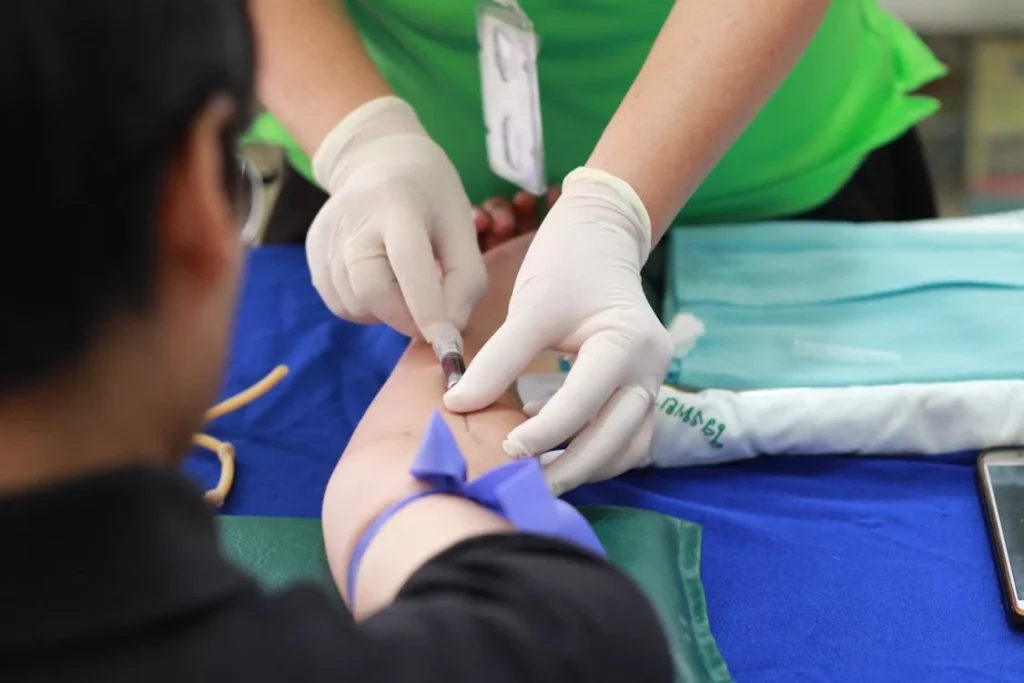
The Role of Legal and Medical Experts in Strengthening Your Case
Winning a medical negligence case requires both legal expertise and strong medical evidence. Since courts rely on technical medical details to determine whether a doctor or hospital was truly negligent, having credible experts on your side can make all the difference.
How Lawyers Help Navigate Medical Negligence Cases
A skilled lawyer with experience in medical negligence cases understands how to structure a claim, gather the right evidence, and counter the arguments made by hospitals and insurance companies.
They ensure that legal documents are filed correctly, represent you in hearings, and negotiate settlements if necessary.
Since medical negligence cases often involve complex medical jargon, a lawyer will break down the case into clear and logical arguments that a judge or consumer forum can easily understand.
Lawyers also help determine the best legal approach. Depending on the case, they may recommend filing a consumer complaint for quicker compensation, a civil suit for higher damages, or a criminal complaint if the negligence was extreme.
They also guide victims through court procedures, ensuring they meet deadlines and present the strongest possible case.
Why Medical Experts Are Critical in Proving Negligence
Medical experts play a crucial role in establishing that the standard of care was violated. Their testimony carries significant weight in court, as they can provide an objective analysis of what went wrong.
If a surgeon operated on the wrong body part, a medical expert would explain how such an error could have been avoided with proper protocols.
If a patient suffered a disability due to a delayed diagnosis, an expert can confirm that an earlier intervention would have prevented permanent damage.
A well-documented expert opinion makes it harder for hospitals to deny wrongdoing. Courts often require a second medical professional to validate the claim before awarding compensation, so obtaining a reliable and respected expert witness is essential.
In cases where hospitals try to shift the blame to the patient, a medical expert can clarify whether the patient’s condition was genuinely worsened by negligence.
Gathering Expert Opinions to Strengthen Your Claim
Finding a medical expert willing to testify can sometimes be challenging, as many doctors hesitate to speak against their peers. However, legal teams often have networks of independent specialists who review cases objectively.
Universities and medical boards can also provide expert opinions when needed. If necessary, courts can be petitioned to appoint an independent medical panel to assess the case.
A strong expert report should clearly outline the medical error, its consequences, and how proper treatment could have led to a better outcome.
A detailed, well-explained expert analysis increases the chances of securing fair compensation and ensures that negligence is recognized legally.

The Court Process and What to Expect in a Medical Negligence Case
Once a complaint is filed, understanding the legal proceedings can help manage expectations. Medical negligence cases follow a structured process, and knowing what to expect at each stage can help victims and their families prepare for the journey ahead.
Filing the Case and Initial Hearings
After submitting a formal complaint to the appropriate court—whether consumer, civil, or criminal—the first step is the court’s review of the case.
If the complaint is filed in a consumer court, the process typically begins with a notice being sent to the doctor or hospital, asking them to respond to the allegations.
In civil or criminal cases, the court may ask for additional medical records and expert opinions before moving forward.
During the initial hearings, the court examines whether the case meets the criteria for medical negligence.
This includes assessing whether the accused party had a duty of care, whether there was a breach of that duty, and whether the breach directly caused harm. If the judge is satisfied with the preliminary evidence, the case moves to trial.
Presenting Evidence and Witness Testimonies
In court, both sides present their arguments. The victim’s lawyer submits medical records, hospital reports, and expert testimonies to establish negligence.
Medical experts explain how the standard of care was violated, providing technical insights into what went wrong and how the disability could have been prevented.
Witnesses, such as family members who observed the negligence, may also provide statements to strengthen the case.
The accused doctor or hospital presents their defense, often arguing that the patient’s condition was due to unavoidable complications rather than negligence.
Hospitals may also claim that they followed standard procedures and that any harm suffered was a known risk of the treatment. In some cases, they may try to shift the blame to the patient, suggesting that non-compliance with medical advice worsened their condition.
The Court’s Judgment and Compensation Award
Once all arguments and evidence are reviewed, the court delivers its judgment. If negligence is proven, the court determines the amount of compensation based on the severity of the disability, the impact on the victim’s life, and the financial losses incurred.
Compensation can cover medical expenses, lost earnings, pain and suffering, rehabilitation costs, and future care needs.
In consumer courts, cases are often resolved faster, and compensation is awarded primarily for financial and emotional damages. In civil courts, compensation claims can be higher, but cases may take longer to conclude.
In criminal cases, if the negligence was extreme, the court may also impose fines or order jail time for the responsible medical professional.
Appeals and Higher Court Reviews
If either party is dissatisfied with the judgment, they can appeal to a higher court. For instance, cases filed in district consumer courts can be escalated to state or national consumer commissions.
Civil and criminal cases can be appealed in High Courts or the Supreme Court if substantial legal or factual errors are identified. Appeals add to the legal timeline, but they also provide an opportunity to challenge unfair rulings or request a higher compensation amount.
The court process requires patience, but a well-prepared case with strong legal and medical evidence increases the chances of a favorable outcome. Understanding these legal steps helps victims and their families stay informed and persistent in their pursuit of justice.

The Long-Term Impact of Seeking Justice for Medical Negligence
Filing a case for medical negligence is not just about individual compensation—it has broader implications for the healthcare system. When victims take legal action, it sets a precedent that forces medical institutions to prioritize patient safety.
It also helps ensure that negligent doctors and hospitals are held accountable, preventing future mistakes that could harm others.
Driving Systemic Changes in Healthcare
When courts award compensation in medical negligence cases, it sends a strong message to healthcare providers that substandard care will not be tolerated.
Many hospitals and clinics have been forced to improve their procedures, upgrade their facilities, and invest in better training for medical staff after facing legal action.
For example, in cases where hospitals have been sued for delayed emergency treatment leading to disability, courts have ordered stricter protocols for handling critical patients.
Similarly, after multiple negligence claims in maternity care, some hospitals have been mandated to improve prenatal monitoring and emergency response times.
Legal accountability plays a major role in pushing the healthcare sector toward safer practices and better patient outcomes.
Encouraging Transparency and Ethical Medical Practices
Many patients do not pursue medical negligence claims because they fear confronting large hospitals or lack awareness about their rights.
However, when cases are taken to court and doctors are found guilty, it creates greater transparency in the medical profession. Hospitals become more cautious about how they handle patient complaints, and doctors become more accountable for their decisions.
Several high-profile negligence cases have led to policy changes in hospital administration, ensuring that medical errors are reported and investigated properly.
This has also encouraged institutions to maintain detailed patient records, improve consent procedures, and introduce independent review boards to monitor medical practices.
Providing Financial Security for Victims and Their Families
For many individuals who suffer a disability due to medical negligence, the financial burden can be overwhelming. Medical treatment, assistive devices, rehabilitation, and home modifications for accessibility can be costly.
A successful compensation claim provides financial relief that helps victims rebuild their lives. It allows them to afford better medical care, therapy, and support systems that enhance their quality of life.
In cases where negligence results in permanent disability, compensation can cover long-term expenses such as prosthetics, wheelchairs, home healthcare services, and income loss.
Families who depend on the victim’s earnings can receive financial support, helping them manage daily expenses and secure a stable future.
The Emotional and Psychological Impact of Seeking Justice
Beyond financial recovery, seeking justice provides a sense of closure and emotional healing for victims and their families.
Medical negligence often leaves individuals feeling helpless, betrayed, and traumatized. Knowing that the responsible parties have been held accountable can restore confidence and dignity.
While no amount of compensation can undo the damage caused, winning a case reassures victims that their suffering has been recognized. It also prevents similar incidents from happening to others, making healthcare safer for future patients.
The Road Ahead: Strengthening Medical Accountability in India
While India has laws to protect patients from medical negligence, many victims still struggle to get justice due to legal delays and lack of awareness.
Strengthening medical accountability requires faster court procedures, stricter enforcement of healthcare laws, and greater public awareness about patient rights.
Hospitals and medical institutions must also take proactive steps to reduce errors, improve patient safety protocols, and establish transparent complaint mechanisms. A healthcare system that prioritizes patient welfare over profit will create a safer, more ethical environment for all.
Conclusion
Medical negligence leading to disability is a life-altering event, but victims have the right to seek justice and compensation. Holding doctors and hospitals accountable is not just about financial relief—it is about ensuring better healthcare standards and preventing similar mistakes in the future. By understanding legal rights, gathering strong medical evidence, and working with legal and medical experts, patients can build a strong case for compensation.
Although the legal process can be challenging, persistence and awareness can lead to meaningful outcomes. Many landmark cases have resulted in higher accountability, improved hospital protocols, and better protections for patients. At the same time, taking preventive measures—such as knowing your rights, keeping detailed medical records, and asking informed questions—can help reduce the risk of medical errors.
A just healthcare system prioritizes patient safety, ethical medical practices, and transparency. Seeking justice for medical negligence is not just about individual compensation; it contributes to a safer, more responsible medical system for everyone. If you or a loved one has been affected by medical negligence, taking action can help rebuild your future while ensuring no one else suffers the same fate.



